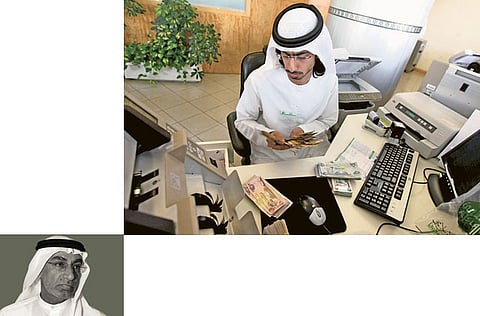Ups and downs of UAE rankings
Getting to the top in Press Freedom Index should be the next challenge for a country that thrives on them

Three worldwide rankings were announced lately but received different responses and got diametrically opposite reactions from the UAE.
The first ranking was the Forbes Magazine 2012 per capita income which acknowledged the fact that the UAE is fabulously wealthy.
According to the latest data compiled by Forbes, the UAE is ranked the six richest in the world in per capita income, which is nearly $48,000 (Dh176,160) as of 2012.
Qatar with the per capita income of more than $88,000 was the undisputed first followed by Luxemburg, Singapore, Norway and Brunei.
To rank the world's wealthiest countries, Forbes looked at GDP per capita adjusted for purchasing power for 182 nations.
The UAE was ranked ninth in per capita income in 2010. Jumping from ninth to the sixth place during exceptionally difficult economic times is indeed welcome news. This per capita income ranking not only confirms that the UAE is richer today than it was just two years ago, but more significantly it shows that the socioeconomic foundation is solid and healthy and that the country is back to business as a stable and safe centre of activity in the region.
The second equally positive ranking is the highly respected annual Human Development Index (HDI) released by the New York based United Nation Development Programme (UNDP).
The UAE proudly acknowledges that it has been ranked the 30th among 187 countries. This is a good three spots forward since the country was ranked 33rd in 2010 UNDP report.
The 2012 report indicates that the bright side of UAE's socio-economic profile is getting brighter and the country is making a steady progress on all essential social welfare measures and is delivering on the basic needs of its nearly eight million population. The HDI typically focuses on the country's education, health services, sustainable development and other aspects of quality of life.
Both of these rankings were taken for granted and were prominently celebrated. These were not mere numbers and blank percentages but concrete, credible and hard-won socio-economic achievements.
The timing of these two generous rankings was perfect too. It is still the second year of the Arab Spring and any good ranking is warmly embraced and naturally makes it to the front pages with no questions asked about their accuracy or their methodological authenticity.
However there was a third disappointing ranking that came to the public attention at the beginning of the year. In the latest Press Freedom Index (PFI) the ranking of the UAE was not only not at its best but more worryingly it is regressing on the important measure of media freedom.
The country is discouragingly ranked 112 in the recently released report from the French journalism watchdog organisation Reporters Sans Frontieres, which covers 176 cases. In the critical year of 2011 the UAE made a sudden and sharp decline of 25 points from its previous 87th ranking. This is probably the biggest drop in the country's history.
The PFI is both selective and controversial since it surveys journalists' attitudes towards incidents of self and government censorship, penalties for press offences and inhibition on free flow of information on the internet.
This embarrassing ranking never made it to the front pages or even the back pages. The instant official reaction was utter dismissal. Local commentators' reaction varied in intensity from condemnation to claims that the ranking was not impartial and that the institution that produces it was unnecessarily singling out the UAE.
National target
The sharp decline in the country's PFI is worrying and should be taken seriously. It needs to be rectified through a concerted national effort to reverse the regression and overcome the drops.
This could very well be on the top list of priorities for Foreign Minister Shaikh Abdullah Bin Zayed Al Nahyan who was appointed last week as the new Chairman of the UAE's National Media Council.
The sharp drop was mostly related to the closing of Al Hewar blog, the arrest of the UAE5 and the difficult year of the 2011. Clearly the gap between the two positive rankings of the sixth place in per capita income and the 30th spot in HDI on the one hand and the not so flattering 112 ranking on PFI is tantalisingly huge. The first two rankings project the best of the UAE and the last ranking shows the worst of the UAE.
To be the first in every conceivable field of activities has become a top national priority for the ambitious leaders of the UAE. The country is placed in the top 10 on per capita income and is on its way to clinching the top position as the economy expands. It is also a matter of time before the UAE moves to the top 10 spots on the HDI. This is the national target for 2021 as the country celebrates it golden anniversary.
But going from 112 ranking on PFI to the top 30 category on matters of media freedom should be the next challenge for a country that thrives on taking up draconian challenges. If the leadership settles for nothing but the first place then the new target should be the first place on the PFI and the new national dream for the UAE should be to become the most democratic and free country on earth by 2021.
Dr Abdulkhaleq Abdulla is Professor of Political Science. You can follow him on Twitter at www.twitter.com/Abdulkhaleq_UAE


